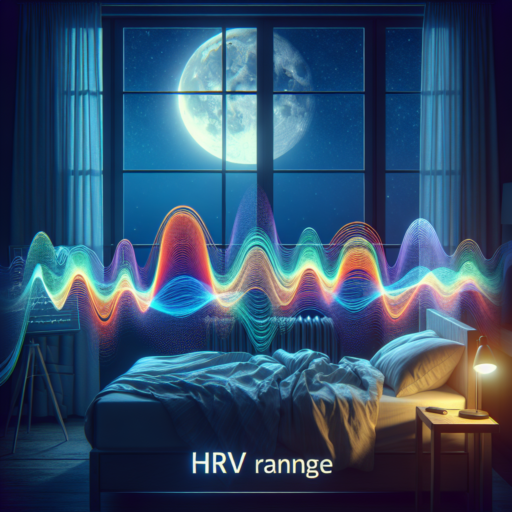No se han encontrado productos.
What is a good HRV score?
Understanding your Heart Rate Variability (HRV) score is crucial to grasping your overall well-being and health. HRV measures the variation in time between each heartbeat, which is a telling indicator of your autonomic nervous system’s ability to adapt to stress, rest, and recuperation. A «good» HRV score typically signals a healthy balance between the sympathetic and parasympathetic nervous systems.
Factors Influencing a «Good» HRV Score
The concept of a «good» HRV score can be somewhat subjective, as it varies widely among individuals. Age, fitness level, and overall health play significant roles in determining an optimal HRV score for each person. Generally, higher HRV scores are indicative of better cardiovascular fitness and resilience to stress. For most adults, an HRV score ranging from 20 to 100 milliseconds (ms) is considered healthy.
The metrics of what constitutes a good HRV score are continuously being refined as more research emerges. It’s essential to compare your scores within the context of your personal health and fitness objectives. Integrating regular monitoring with lifestyle adjustments can meaningfully impact your HRV, enhancing both physical and mental health.
Using HRV tracking devices and apps can help individuals tailor their exercise regimens, stress management techniques, and recovery strategies to improve their overall health and wellbeing. Remember, consistently low HRV scores or sudden changes should prompt further investigation, potentially signaling an imbalance or health issue that warrants professional attention.
Should I worry if my HRV is low?
When it comes to understanding our overall health and wellness, Heart Rate Variability (HRV) plays a significant role. HRV measures the variation in time between each heartbeat, considered an indicator of your autonomic nervous system’s balance and your body’s ability to handle stress. A common concern is whether a low HRV score should raise alarms.
Firstly, it’s crucial to understand that a lower HRV can signify several factors, including stress, poor sleep quality, or even potential health issues. However, it’s important not to jump to conclusions based solely on this metric. The context, such as physical fitness levels, age, and lifestyle, also significantly impacts HRV readings. Therefore, a holistic approach to interpreting these numbers is essential.
Moreover, lifestyle choices have a profound impact on HRV. Elements such as nutrition, exercise, stress management, and sleep quality can all influence your HRV. Before allowing a low HRV reading to cause worry, consider examining these areas of your life. Small, manageable changes in daily habits can often lead to significant improvements in HRV over time.
What level should HRV be?
Understanding the optimal level for Heart Rate Variability (HRV) is crucial for interpreting one’s overall well-being and fitness levels. Generally, a higher HRV indicates better cardiovascular fitness, stress resilience, and recovery status. However, identifying a «one-size-fits-all» number is challenging due to the individualistic nature of HRV.
Typically, average HRV scores for adults range from 20 to 100 milliseconds (ms). It’s important to note that these numbers can vary significantly based on age, gender, and physical condition. For instance, younger individuals and those with higher fitness levels often exhibit higher HRV. Conversely, lower HRV readings might suggest stress, fatigue, or underlying health issues.
To understand your personal «ideal» HRV level, consistent monitoring over time is essential. This allows for the establishment of a baseline that helps in identifying deviations indicative of potential stressors or recovery needs. Therefore, rather than focusing solely on achieving a specific number, the goal should be to monitor changes and maintain HRV within your individual normal range.
Why is my HRV over 100?
Having a High Heart Rate Variability (HRV) over 100 can be indicative of various factors related to your physical and mental well-being. HRV refers to the variations in the time intervals between heartbeats, and a higher number often suggests a more resilient and flexible cardiovascular system.
Impact of Lifestyle Choices
Your lifestyle plays a crucial role in influencing your HRV. Factors such as physical activity levels, stress management, and sleep quality can significantly impact your heart’s ability to adapt and respond to different stressors. Regular exercise, for instance, is known to improve HRV by enhancing heart health and increasing its efficiency. Similarly, effective stress management techniques and good sleep hygiene can help in maintaining a higher HRV, reflecting a balanced autonomic nervous system.
Understanding the Norm
It’s important to recognize that HRV scores can be highly individual. What might be a normal HRV for one person could be unusually high for another. Various factors including age, genetics, and overall health status can influence what’s considered a ‘normal’ HRV score. Therefore, while an HRV over 100 might be perfectly normal and indicative of good heart health for some, it could signify an anomaly for others. Understanding the context of your personal health and fitness background is key when interpreting these numbers.




